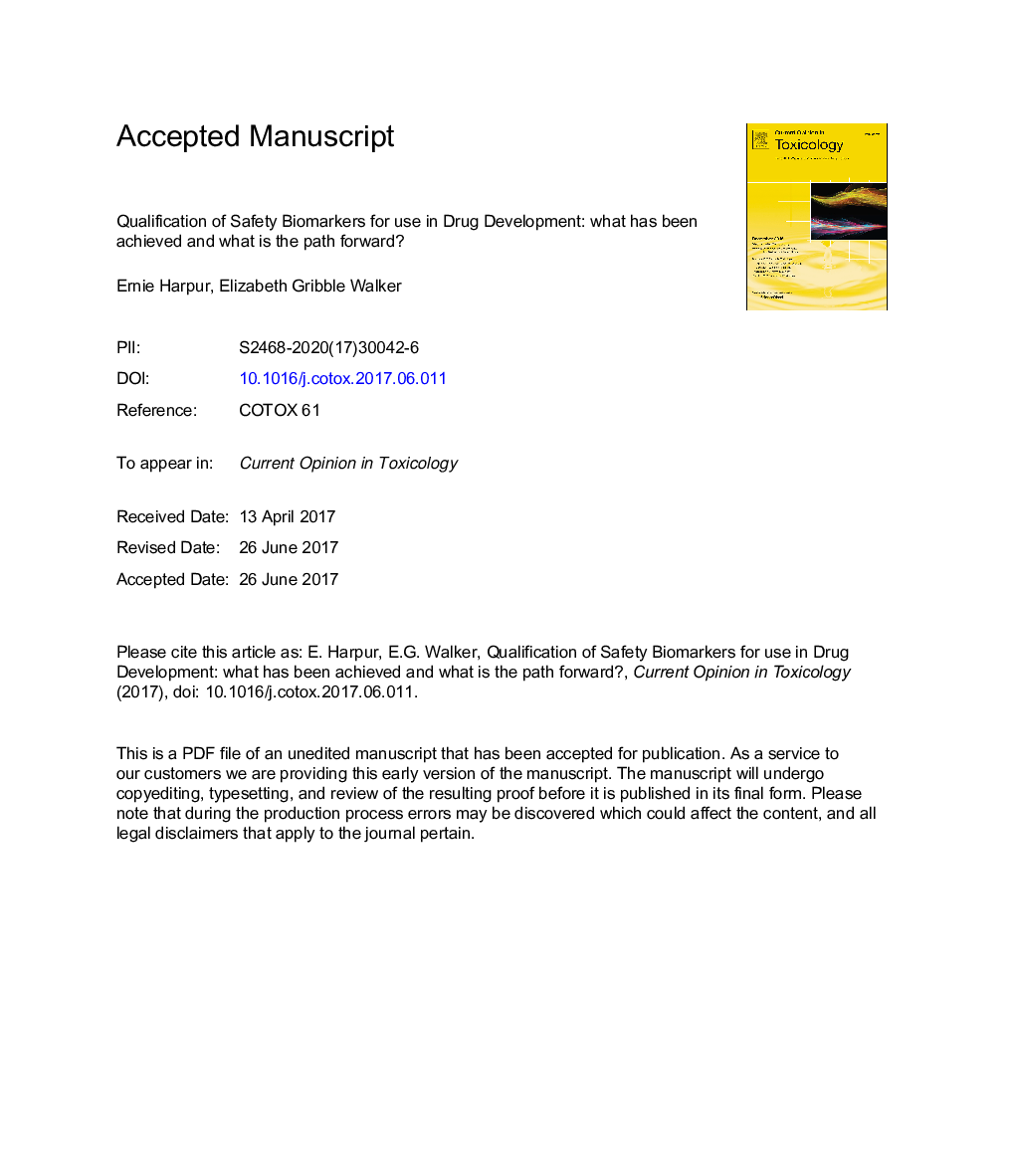| Article ID | Journal | Published Year | Pages | File Type |
|---|---|---|---|---|
| 8920249 | Current Opinion in Toxicology | 2017 | 23 Pages |
Abstract
There are multiple categories of biomarkers (such as safety, diagnostic, prognostic, susceptibility/risk, predictive, monitoring, pharmacodynamic/response or surrogate) giving rise to many applications in clinical medicine and drug development. The scope of this article is limited to the development and evaluation of novel safety biomarkers, leading to their regulatory qualification for use in the different phases of drug development, from early preclinical safety assessment to clinical trials. The goal is that, once these additional safety biomarkers are adequately demonstrated to perform translationally across the common animal test species (rat, mouse, dog and nonhuman primate) and in humans, they will enhance the efficiency and utility of both the animal toxicology studies that are used to support the safe conduct of clinical drug trials, as well as the safety of clinical trials themselves. From a regulatory perspective, the actions of the US Food and Drug Administration (FDA) have been highlighted because, although other regulatory agencies, notably the European Medicines Agency, have also been very active in this sphere, the FDA stands out for the sustained leadership it has given. The barriers to progress and necessary refinements to expedite a complex and resource intensive regulatory qualification process are discussed.
Keywords
Related Topics
Life Sciences
Biochemistry, Genetics and Molecular Biology
Biochemistry
Authors
Ernie Harpur, Elizabeth Gribble Walker,
